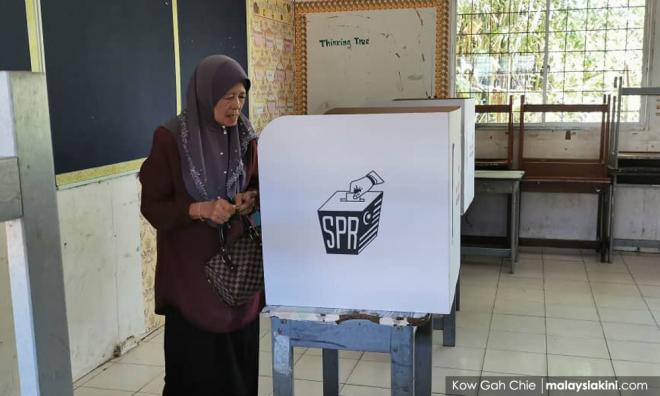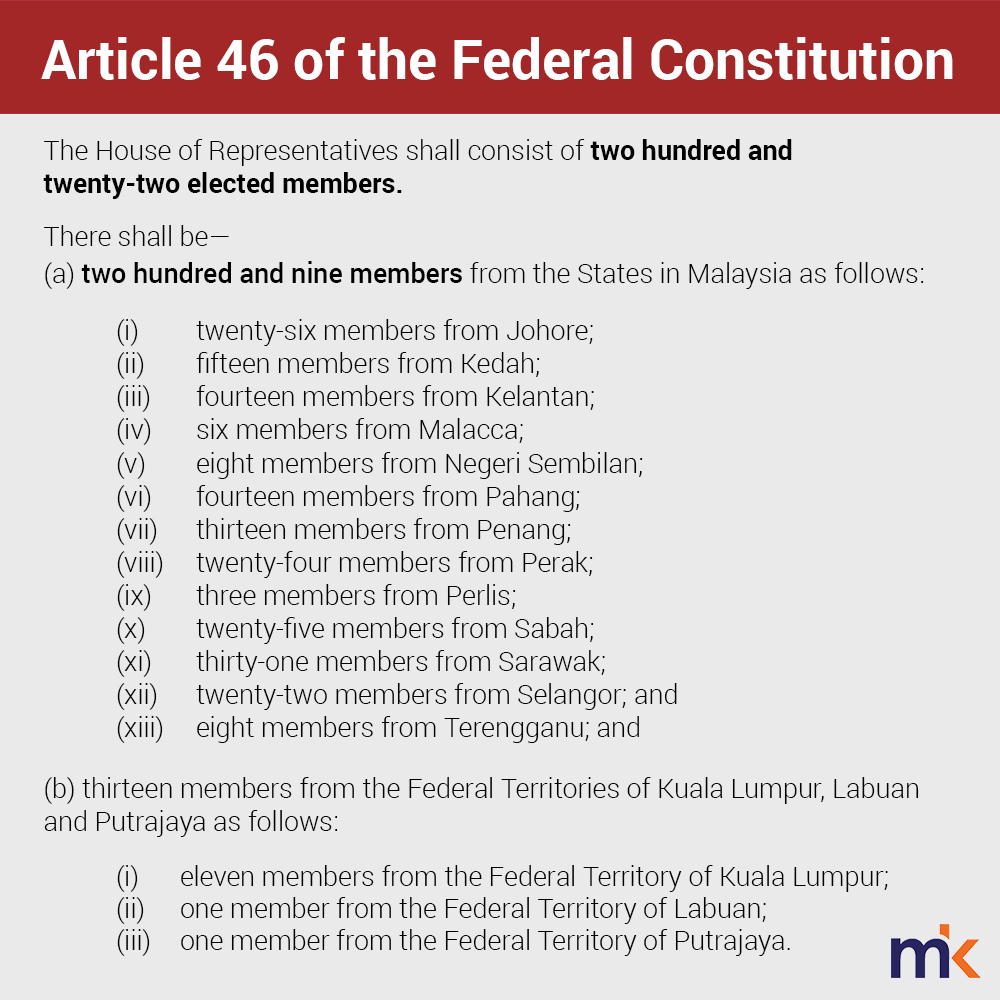Elections - overcoming Article 46 hurdle for true proportionality

The Election Reform Committee's (ERC) proposal to introduce a "proportional representation" election system has one glaring flaw - it still doesn't make every vote equal.
To recap, the proposed system involves voting for parties instead of individual candidates. Seats in Parliament will be identified based on states instead of constituencies.
The motivation behind this proposal was to lay the groundwork for an eventual system where the number of seats in Parliament reflects the proportion of votes received by parties.
Under the current election system, there have been three instances where a coalition formed the federal government without winning the majority of votes outright (in 1969, 2013 and 2018).

In a recent interview with Malaysiakini, Thomas Fann (above), head of electoral reforms pressure group Bersih, pointed out that the proposed proportional representation system only eliminated intra-state malapportionment.
Fann said the distribution of parliamentary seats across the country was stipulated in Article 46 of the Federal Constitution - and that should be addressed first.
For instance, Selangor has 22 parliamentary seats or one for every 100,000 voters. In the case of Johor, it has more seats - 26 - despite having fewer voters than Selangor. In Johor, for every seat, there are 64,000 voters on average.
'Mega constituency' vs more seats
In view of this, Fann suggested that the ERC should propose a repeal or amendment of Article 46.
"Have a list-proportional representation system where the whole peninsula is one 'mega constituency' with Sabah and Sarawak as separate units.
"Alternatively, accept the cost of a substantial seat increase by amending Article 46 to bring proportionality to the states," said Fann.
Under the Thirteenth Schedule of the Federal Constitution, the number of voters in each constituency is required to be "approximately equal".
In practice, the average parliamentary constituency sizes for the last parliamentary election ranged from 50,074 in Perlis to 109,776 in Selangor.
Single-issue parties
Meanwhile, public policy researcher Kenneth Cheng expressed doubts over predictions that the proportional representation system would encourage political parties to move towards the centre to appeal to a mass audience.
Cheng said the exact opposite - the rise of fringe parties championing single issues - might happen because, under the proposed system, smaller parties have a better chance of winning seats.
A feature in the current "first-past-the-post" system was that it is a "winner takes all" system where the number of seats secured by a party is not contingent on the proportion of votes it receives.
From what's been revealed by the ERC, the proposed system will see any political party meeting a threshold in votes receiving seats in Parliament in proportion to the percentage of the vote for each state.
Cheng said that under such a system, it is possible for single-issue parties to emerge from homogenous areas of the country such as Kelantan and Terengganu.
Citing a hypothetical "hudud party" as an example, Cheng said minor parties, if successful in winning just one seat in Parliament, could influence the national discourse.
"It will give them some minor political power [...] If their single issue is deemed to be popular enough, mainstream political parties might adopt their cause due of fear of losing electoral support to these fringe parties," he said. - Mkini
✍ Credit given to the original owner of this post : ☕ Malaysians Must Know the TRUTH
🌐 Hit This Link To Find Out More On Their Articles...🏄🏻♀️ Enjoy Surfing!




















Post a Comment